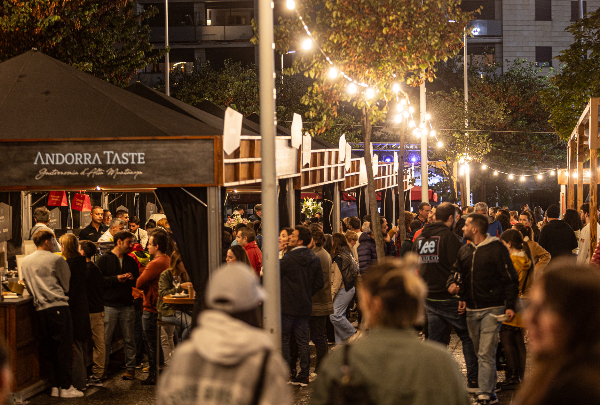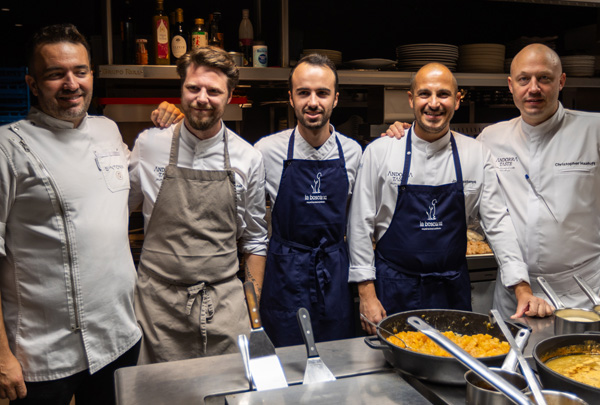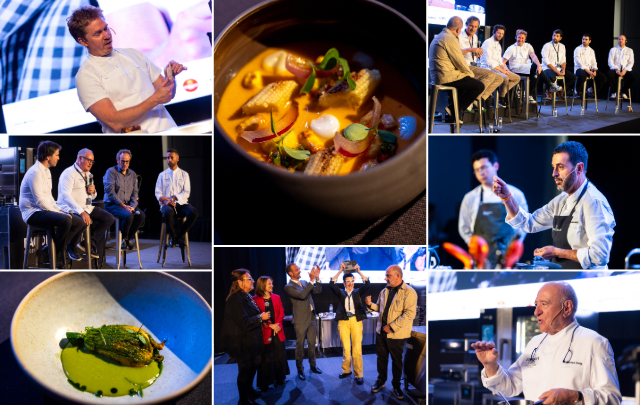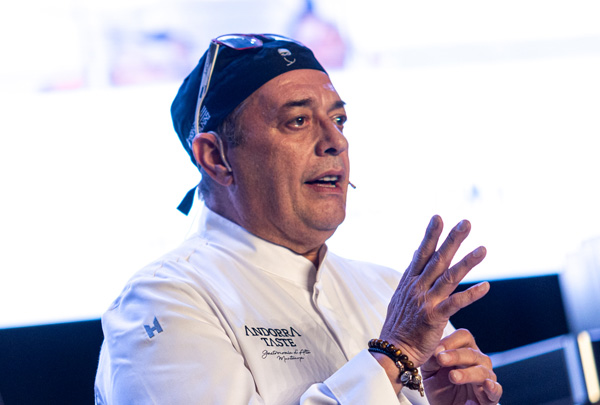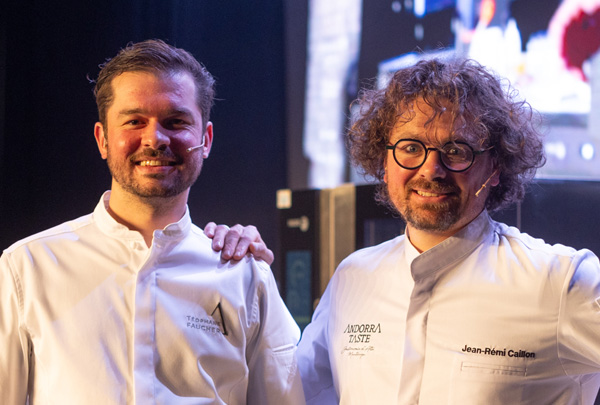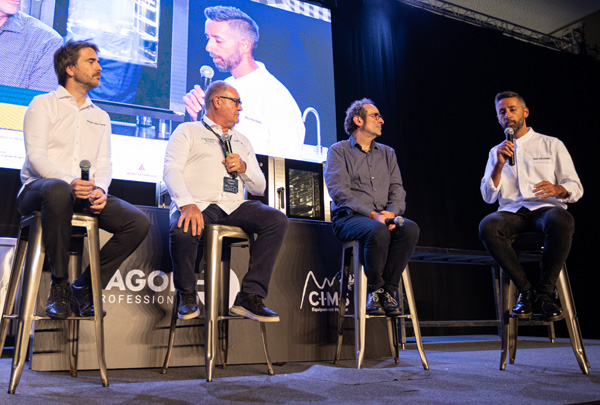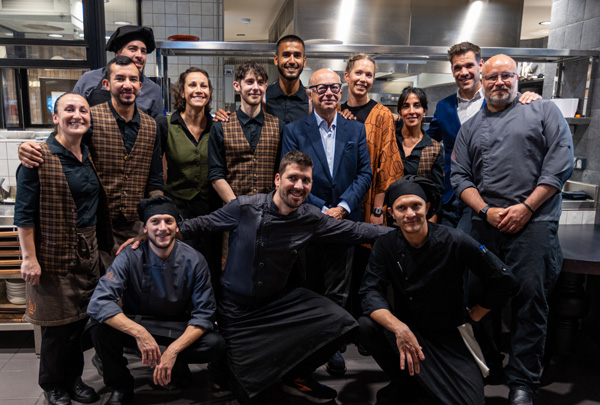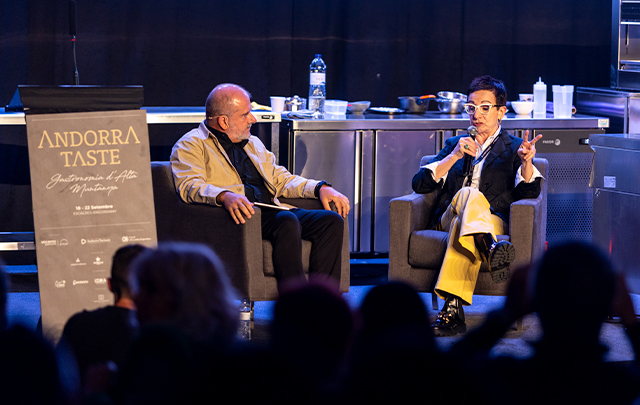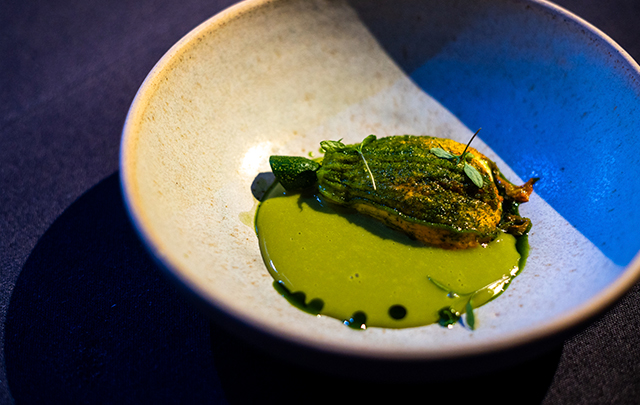News
Andorra Taste closes its third edition with simple mountain cuisine and Chinese wines from the Himalayas
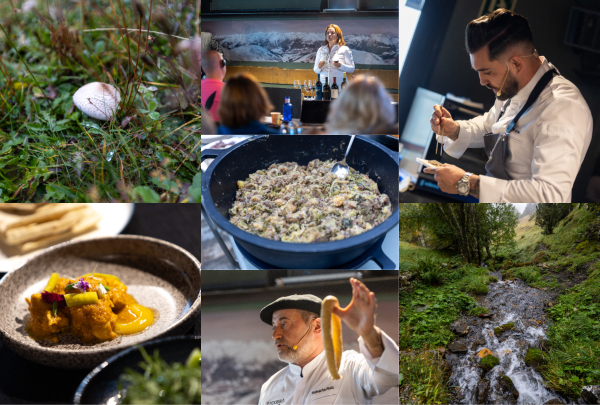
Andorra Taste closes this year's edition by highlighting the fact that the terroir adapts to the cuisine of any corner of the world and by reaching out to the 155 signatories of the Andorran Manifesto, the document that aims to care for and promote mountain cuisine.
The third edition of Andorra Taste, the International Meeting of High Mountain Gastronomy, ended its professional days in the mountains this Friday, entering the territory that has been defended and gastronomically shaped by several chefs over the last few days. At an altitude of 2,250 metres, in the facilities of the Grandvalira ski resort in Andorra, Andorra Taste ended an edition that showed that apparently very different territories have much more in common than they appear to. This was the case between the high mountains and the Nordic countries - this year's guests at the congress - both areas with specific geographical and climatic conditions that determine their cuisine.
There was an immediate bond between the chefs who had come to Andorra and between the Andorran chefs and their Spanish neighbours, and they all signed the Andorran Manifesto. In this document, which began to take shape during the first edition of Andorra Taste, the chefs and producers call for the unity of the sector in order to be able to face the challenges that mountain cuisine must continue to develop and evolve in the future. Famous names such as Gastón Acurio, Joan Roca, Ana Ros, Fina Puigdevall and Sven Wassmer are among the first signatories of the manifesto, which has been joined by all the participants in this new edition. With the addition of new names such as Filip Gemzell, Søren Selin, Christopher Haatuft, Frédéric Molina, Elena Arzak and David Yárnoz, among others, the Andorra Manifesto now has 155 signatories. Chefs and producers united in their desire to promote mountain regions and their culinary heritage. A heritage that, as the director of Vocento Gastronomía, Benjamín Lana, said during the closing ceremony of the congress, "we must ensure is not lost".
In his speech, Lana also highlighted one of the lessons of Andorra Taste, which "showed that any cuisine in the world can be adapted to the concept of terroir". A foundation on which Nordic Cuisine was built, as one of its founding fathers, Claus Meyer, explained at the congress.
Betim Budzaku, Director General of Andorra Turisme, also spoke at the end of the meeting about the path taken by the Nordic countries and their particular gastronomic revolution: "Andorra must learn from the export of the "Nordic brand", which Nordic gastronomy has done to help us become a tourist destination 365 days a year," he reflected.
Treading the ground
The third day of Andorra Taste began early in the autumn air with a trip to the mountains. An opportunity to get to know the territory and its treasures, such as aromatic herbs and mushrooms. An Andorran landscape to start the day, from which we quickly moved to other heights with the presence of former Sherpa and chef Akhond Ishaq.
This chef, who comes from the Karakorum Mountains (Himalayas) in Pakistan's Baltistan, is currently based in Bilbao, where he runs a restaurant serving typical dishes from his region. Ishaq has brought a taste of Balti cuisine to Andorra Taste, such as chapati, "a very nutritious and comforting bread that accompanies many of our dishes and is perfect for regaining energy during hard days in the mountains," he explained. As a Sherpa, Akhond Ishaq has had hard experiences, but he admits that cooking the dishes of his region comforts him, which is why he wanted to bring to Andorra a vegetable and apricot curry, "the stew we ate the night before the day a companion died on an expedition in the high mountains".
Basque chef Roberto Ruiz, head chef at Hika Gastronomika (Villabona, Guipúzcoa), also talked about survival. 300 years ago, we Basques ate turnips and chestnuts. We grew them in acidic soils, with lots of rain and little sunshine. In this culinary panorama, chestnuts were replaced by broad beans - 'which had to be cooked for many hours and had a very strong flavour' - until the arrival of beans in the 19th century. A product that Roberto has turned into his company's flagship and trademark. According to the Hika chef, "sometimes we don't take into account what is our own, because we are so used to it that we don't give it the value it deserves". That is why his commitment to this product and its inclusion in his restaurant was an important boost to its dignity.
The Andorran representative of the day was Jordi Grau, executive chef at Sport Hotels Resort & Spa and chef at Ibaya* (Soldeu), who took the opportunity to present "the new Ibaya, which will be launched in a month's time", explained Francis Paniego's right-hand man in Andorra. Grau's new proposal aims to be "a testimony to the changes in the weather, to the seasons in the mountains", and to this end he drew a winter with a snack of thyme soup, egg and hard bread; or an autumn with a pickled wild rabbit.
Mountain wines, a high-altitude jewel
The gastronomic journey undertaken by all the chefs taking part in this third edition of Andorra Taste was rounded off by a liquid tour of the high altitude areas, offered during a wine tasting led by Master of Wine Almudena Alberca. The sommelier began her talk by explaining that "mountain wine is very complex, because the variability of mountain climates is very high and this allows us to find many different expressions of mountain wines".
Alberca presented wines from Argentina, Bolivia, the Himalayas, Spain, Sicily and, of course, Andorra. In all cases, despite the specific characteristics of each wine, Almudena Alberca wanted to highlight 'the difficulty of growing in the mountains'.
Alberca presented wines from Argentina, Bolivia, the Himalayas, Spain, Sicily and, of course, Andorra. In all cases, despite the specific characteristics of each wine, Almudena Alberca wanted to highlight "the difficulty of growing in mountain areas, not only because of the rainfall, but also because of the draughts and the very high levels of light that cause the grapes to ripen more quickly". As she defined it, "mountain wines are the fruit of heroic viticulture".
The sommelier concluded her presentation by saying that "it is currently fashionable to have wines at altitude". A "fashion" imposed by necessity, because "due to climate change, there is now a tendency to seek altitude for vineyards and thus better control the ripening of the grapes".


